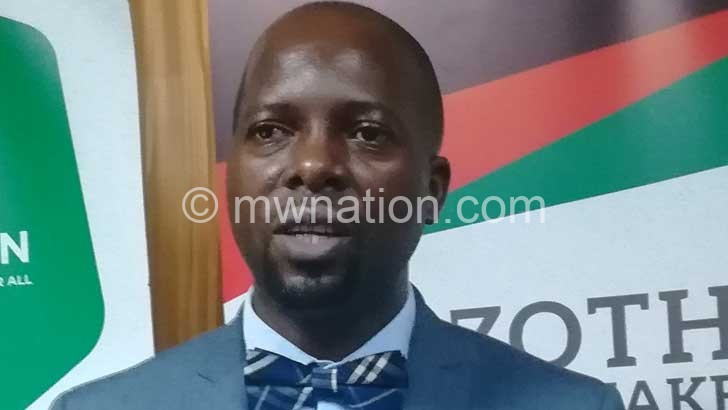Research findings to feed into Vision 2063
National Planning Commission (NPC) director-general Thomas Chataghalala Munthali has said research findings presented at the Third National Research Dissemination Conference in Mangochi will be critical in the development of the National Transformation Agenda 2063.
In an interview on the sidelines of the conference officially opened by Vice-President Saulos Chilima in his capacity as Minister of Economic Planning and Development and Public Sector Reforms, the NPC chief said research, science, technology and innovations inform development policy and resource allocation decisions of both State and non-State actors.

Munthali said the research dissemination gathering had come at the right time when the country is set to launch the National Transformation 2063 as the successor of Vision 2020.
He said: “The Malawi we want is possible, but it can be attained much earlier if we fully embrace research, science, technology and innovation and mainstream evidence-based planning in our development programmes as well as commercialisation of innovations.”
The two-day conference, jointly organised by the NPC and the National Commission for Science and Technology (NCST), is being held under the theme Research, Innovation and Entrepreneurship Towards a Productive and Resilient Nation.
Munthali said in the new vision, Malawians, especially the youth, have clearly spoken on the need to have an inclusively wealthy and self-reliant nation by 2063.
The majority of the population, he said, aspires to have a knowledge-based upper middle-income industrialised economy built around three pillars of agricultural productivity and commercialisation, industrialisation and urbanisation; hence, for the country to meet the targets, research, science, technology and innovation are critical enablers.

In his address, Chilima said Malawi will only achieve meaningful growth in the new vision through use of home-grown research and innovation.
The Vice-President challenged all researchers in the country to think big and think local.
He said time had now come for local research institutions to stop being on the receiving end of foreign-driven research agendas.
Directly facing the gathering, the Vice-President stressed that Malawi is not an experimenting laboratory, as such, the country must develop own national research agenda based on prevailing challenges.
Chilima said: “We need to harness our home-grown solutions for the advancement of our economy and promote a good quality of life for all.
“The Tonse Alliance administration will ensure the increase in resources allocated towards research and development and remains committed to facilitating for the creation of the Science and Technology Fund as provided for under the NCST Act.”
On his part, NCST board of commissioners chairperson Emmanuel Kaunda accepted the Vice-President’s challenge to champion research for locally generated evidence-based solutions.
However, he was quick to point out that government, the private sector and all concerned institutions should collaborate in providing desired locally generated resources to finance research.
Kaunda said: “We are taking the challenge by the Vice-President seriously. What we require from government and private sector is an injection of resources to conduct research for home-grown solutions.”
He encouraged the researchers to make their findings public to ensure utilisation of the knowledge.
Minister of Education Agnes NyaLonje said research, science, technology and innovation are critical in providing solutions to problems.
Presenting on the online case management system in the Malawi Judiciary and its implications on justice delivery, consultant Winner Chawinga observed that while the system enhanced efficiency, the challenge remains with the fact that information and communications technology does not replace knowledge and skills.
He said the electronic case management system was championed to do away with the backlog of cases in the Judiciary as well as distortions where workers would register new cases for trial at the expense of old cases due for trial.
The NCST is mandated by law to promote and coordinate research, science, technology and innovations while the NPC has the responsibility of formulating innovative and progressive flagship projects that can operationalise national developmental vision.





